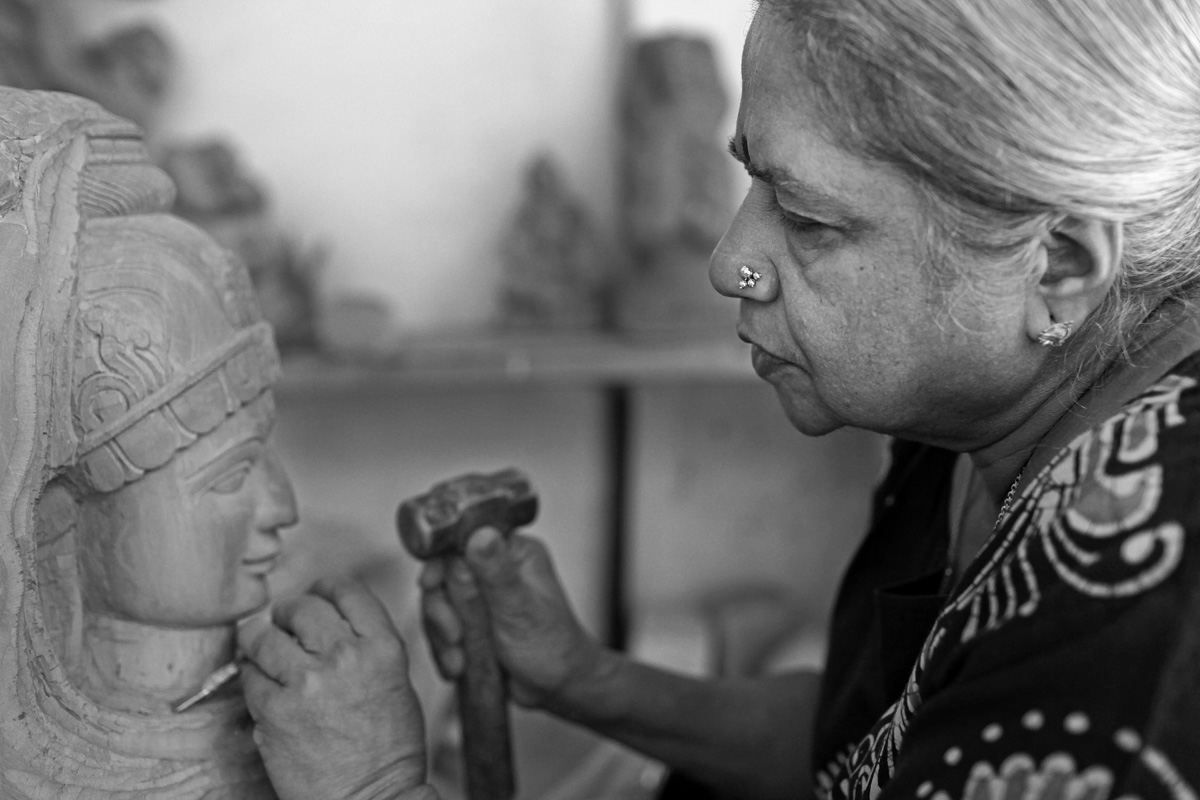Recepient of Rajyotsava Award and Karnataka Jakanachari award, Kanaka Murthy succummed to Covid-19 today. Kanaka Murthy, 79, had developed Covid-19 symptoms a few days ago and was under home quarantine. However, her condition worsened and she was rushed to the hospital where she breathed her last. She is survived by her husband Narayana Murthy and daughter Sumathi.
Kanaka Murthy fell in love with the sound of chipping stone at a very young age. She loved the rough edges of the stones that she used to sculpt. She always adored how stone gradually begins to reveal its form and texture. A visit to a temple in Mysuru made her choose a career in sculpting and thus, hammer and chisel became her best friends forever.
Despite sculpting not being something a woman in the small Karnataka town of T Narsipur was expected to take up in the 1960s, Kanaka Murthy has pursued it for over five decades. The statues of Kannada litterateur Kuvempu near Lalbagh in Bengaluru, Wright Brothers outside Visvesvaraya Museum in the city, Gangubai Hangal, Bhimsen Joshi and K M Munshi stand testimony to some of her great work and finesse.
Her autobiography ‘Howde? Idu Naane!’ (Really? This Is Me) records, among other things, her journey in the world of stone art.
She was a disciple of Devalankunda Vadiraj. As a young girl, when they had guests over at their house, Kanaka’s father would arrange for them to go in a cart to see the Somanathpur temple and other shrines with Hoysala sculptures. “When I looked at the deities and the sculptures, they seemed divine. I hadn’t known there were sculptors who could make the stone idols, till I first saw the works of my guru”, she said in an interview.
“Soon after I graduated with a bachelor’s degree in mathematics and physics in Bangalore, my parents were looking to marry me off, but I didn’t want to sit idle at home,” she recollects in her book. She enrolled for a painting course at Kalamandir, an art school where she found that while she was skilled at drawing, even though she wasn’t as satisfied with her work when she filled them with colour.“ One day, (Devalankunda) Vadiraj came and saw my line drawings. He asked if I would like to go see his work,” recalls Kanaka. At his studio, his sculptures fascinated her. On her request, he accepted her as his student. “But I couldn’t start learning immediately because I needed my parents’ consent. When my mother came to visit me a little later, I took her to his studio. Apparently, some members of her family used to make Gowri-Ganesha idols, so she was interested in sculpting. She asked my guru to teach me, but she had thought it would just be a hobby,” she adds. Thus started the five decade long celebrated journey.
May Kanaka Murthy continue to inspire and influence younger artists for several years to come.


